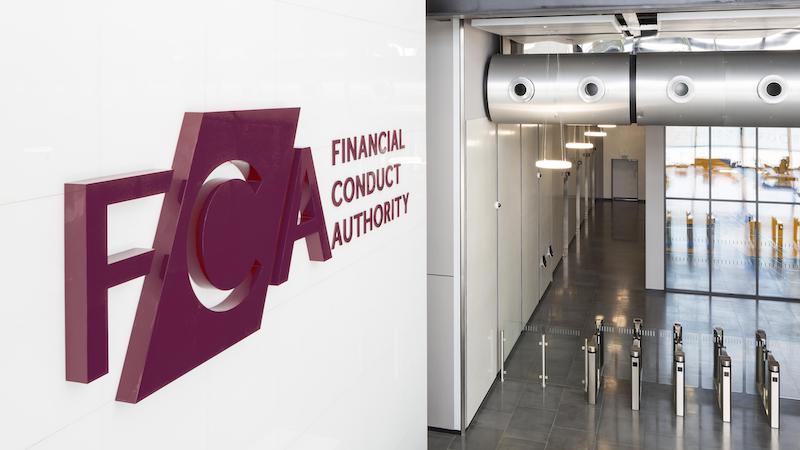The asset management industry has some big issues to address when it comes to fund governance as the Financial Conduct Authority’s latest probe identifies a host of flaws in fund groups’ assessment of value (AoV) exercises.
The FCA’s review of the AoV market, published earlier this week, highlighted several areas where asset managers are falling short. It followed hot on the heels of a report last week in which the regulator was equally critical of ‘host’ authorised fund managers – the fund administrators expected to keep fund managers in check.
Among the findings of the regulator’s AoV report were that some managers are incorrectly assuming existing fund charges already reflected shared economies of scale. It also found some are spending a disproportionate amount of time looking for savings in admin charges compared with reviewing the costs of asset management and distribution that typically cost investors much more.
In addition, when considering a fund’s performance, the FCA found many firms did not consider what the fund should deliver given its investment policy, strategy and fees. It also identified incomplete AoVs which failed to adequately address all seven of the FCA’s criteria that firms are expected to adhere to.
Issues were flagged earlier this year
The findings should not come as a huge shock to most as similar issues were flagged earlier this year as fund groups started to roll out their second AoV reports. Back in February the CFA UK found a significant proportion of reports were not up to scratch, with reporting on risk, liquidity and ESG factors largely missing.
It found more than two-fifths failed to state the OCF at individual fund level – a key piece of information for retail investors. Additionally, 58% did not quantify over- and underperformance, making many of the net performance details relatively meaningless for investors.
Then in April, the Fund Boards Council flagged similar concerns. It published a report that found the majority of independent directors expect to spend less time on AoV and had not changed tack on how they discuss fund performance, despite criticisms that managers were ‘marking their own homework’.
INEDs under fire
The FCA’s report also found some of the independent non-executive directors (INEDs) on AFM boards were not providing the “robust challenge” it expected and appeared to lack sufficient understanding of relevant fund rules.
Rod Cooper, a partner at Cooper Wood & Associates which helps asset managers and non-executive directors (NEDs) meet their regulatory responsibilities has also observed that some INEDs do not seem to understand how to question and challenge the AoV reports that are produced.
“The process has been internalised, whereas it should perhaps be treated more as an ongoing audit of self-improvement where firms can seek independent AoV expertise to benchmark and assess the robustness of the process, before any submission to the FCA,” he says.
What can asset managers learn from the FCA’s findings?
The FCA’s report is clear on how stakeholders should address the shortcomings.
It says firms that were going about the process correctly had “clearly defined procedures and metrics for collating and presenting information to AFM boards” which helps the boards make informed decisions about funds’ value.
It also suggests fund groups ‘sense-check’ reports to ensure the conclusions reflect the AFM board’s overall view of a fund’s value. This should include whether equal weighting is being given to each of the FCA’s seven considerations rather than focusing on one or just a few of them.
Cooper says AoV exercises need to be considered as an ongoing process of cultural improvement as an extension of the regulator’s asset management market study which found evidence of “weak demand-side pressure” in the authorised funds market, which resulted in a lack of competition on fees and charges.
He says: “We are not entirely surprised by the FCA’s findings and conclusions as our experience has been that some firms have been guilty of ‘marking their own homework’, have considered AoV as yet another item to add to the list of reporting requirements to be submitted annually, and have delegated the process to administrative and less experienced staff.”
Are more prescriptive rules the answer?
But would more prescriptive approach by the regulator help fund boards deliver satisfactory reports?
“We have no doubt that many firms would have preferred a more prescriptive approach, and most managers have not widened their own assessment beyond the seven criteria proposed by the FCA,” says Cooper. “However, we don’t believe the FCA wanted to be too prescriptive so as to avoid AoV becoming yet another annual compliance tick-box chore.”
Interactive Investor head of personal finance Moira O’Neill does think there should be clearer guidelines on the reporting of value for money statements.
“They are frustratingly difficult for ordinary investors to find and require journalist-like investigative skills. It need not be so difficult,” she says.
“In the absence of independent boards of directors on open-ended funds, value for money reports have potential to act as a check and balance – but we are not quite there yet.”
Cooper adds that overall it is clear that the quality of the final reports is inherently linked to the having the right internal skill set and the overall robustness of the AoV process, something asset managers need to look outside their own company for help with.
“A good example of where managers have misinterpreted the requirements is where they have produced their assessment at fund level, rather than individual share-class,” he adds. “We have concluded that some firms would benefit from independent guidance to avoid future censure by the FCA.”







